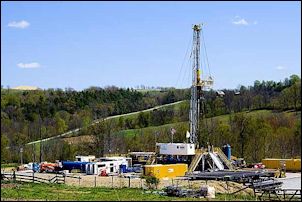Environmentalists have pointed out numerous potential problems with fracking, the use of high-pressure water and chemicals to extract oil and gas from shale rock formations. The process consumes large quantities of water, it injects toxic chemicals underground, and it might even cause earthquakes. But the most alarming charge is that fracking poses a risk to public health by contaminating drinking water. As the United States organizes its energy policy around the extraction of oil and gas by fracking — and as Virginia re-orients its electricity portfolio to natural gas, much of it obtained through fracking — it is prudent to investigate these concerns.
The Environmental Protection Agency (EPA) has done just that, recently releasing a draft report resulting from a five-year study. During that time between 25,000 and 30,000 wells were drilled and fracked annually. Between 2000 and 2013, more than nine million people lived within a mile of a fracked well. While the EPA identified multiple mechanisms by which fracking theoretically might pollute drinking water, it found that the actual impact to be limited.
We did not find evidence that these mechanisms have led to widespread, systemic impacts on drinking water resources in the United States. Of the potential mechanisms identified in this report, we found specific instances where one or more mechanisms led to impacts on drinking water resources, including contamination of drinking water wells. The number of identified cases, however, was small compared to the number of hydraulically fractured wells.
The EPA conceded that the study had limitations, however, and the paucity of negative impacts might reflect a lack of data rather than the lack of actual harm.
In an assessment of the EPA study, McGuire Woods attorneys Bernadette M. Rappold and Jonathon T. Blank write:
What is clear is that the agency appears not to have found a wake of horrors in hydraulic fracturing’s path. That may reduce, for now, the repeated calls for more vigorous regulation of hydraulic fracturing, but is unlikely quell the protests of environmentalists who claim that this industrial process, which is responsible for an overall reduction in the nation’s greenhouse gas emissions, requires stricter oversight.
— JAB
